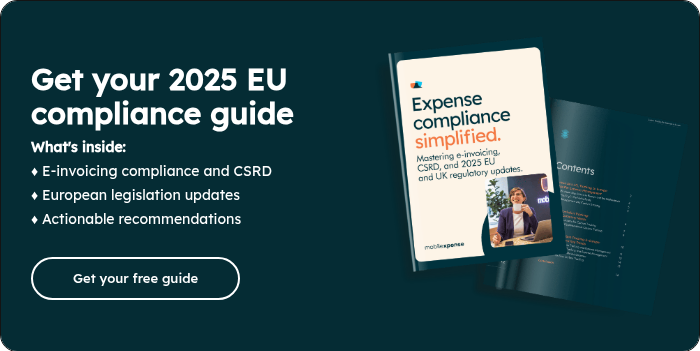VAT rates in Sweden
Sweden imposes Value Added Tax (VAT) at different rates as follows for various goods and services:
1. Standard rate - 25%
The standard Swedish VAT is applicable to all taxable goods and services, except when a specific measure allows for a reduced rate.
2. Reduced rate - 12%
Some foodstuffs; non-alcoholic beverages; take away food; hotel accommodation; restaurant and catering services.
3. Reduced rate - 6%
Domestic passenger transport; books (including e-books); newspapers and some periodicals; admission to cultural events (excluding cinema); admission to sports events; use of sports facilities.
4. Zero rate - 0%
Printing and other services related to the production of magazines for non-profit making organizations; intra-community and international passenger transport.
Daily allowances in Sweden
Employees of Swedish companies travelling for business may be entitled to per diem allowances as set out below:
- Full day - For trips starting before 12:00 on the day of departure and ending on the day of return after 19:00.
- Half day - For trips starting at 12:00 or later on the day of departure, or ending at 19:00 or earlier on the day of return.
- Night allowance – For trips taking place between 24:00 and 06:00.
- Multi-day trip - the country in which the traveller has spent most of their time over the duration of the trip determines the country rate to be paid. The business day is considered as starting at 06:00.
| Domestic | Foreign | |
| Full Day | SEK 300,00 | 100% per diem |
| Half Day | SEK 150,00 | 50% per diem |
| After 3 months | SEK 210,00 per full day | 70% of the normal amount per full day |
| After 2 years | SEK 150,00 per full day | Half the normal amount per full day |
| Night allowance | SEK 150,00 | Half the normal amount |
Deductions
If the employer is paying for the employee’s meals during the business trip, deductions must be made to the tax-free allowance. In certain cases, it may also be relevant to tax the meal as a benefit.
| Condition | Deduction | Tax-free meal benefit |
| Free meals during business trip |
Yes |
Yes |
| Hotel breakfast, which is compulsorily included in the room price | Yes | No |
| Meals on public transport which are compulsorily included in the price | Yes | No |
| External representation | Yes | No |
| Internal representation | Yes | No |
Meal deductions
| Domestic business trips | Full Amount | 70% of max. amount | 50% of max. amount | 30% of max. amount |
| Standard deduction for increased expenses for meals and miscellaneous small expenses | SEK 300,00 | SEK 210,00 | SEK 150,00 | SEK 90,00 |
| Reduction for: Breakfast, lunch and dinner |
SEK 270,00 | SEK 189,00 | SEK 135,00 | SEK 81,00 |
| Lunch and dinner | SEK 210,00 | SEK 189,00 | SEK 135,00 | SEK 81,00 |
| Lunch/Dinner | SEK 105,00 | SEK 74,00 | SEK 53,00 | SEK 32,00 |
| Breakfast | SEK 60,00 | SEK 42,00 | SEK 30,00 | SEK 18,00 |
*30% of the maximum amount refers to the case where the travelling employee did not receive an allowance and are making deductions for business trips lasting more than three months as well as employees making deductions in the case of dual residence.
When traveling abroad on business, you must reduce the allowance:
| Meal | Percentage |
| Completely free diet | 85% of the normal amount |
| Lunch and dinner | 70% of the normal amount |
| Lunch or dinner | 35% of the normal amount |
| Breakfast | 15% of the normal amount |
Taxable meal benefit Income year 2025
- Breakfast: SEK 61 per day
- Lunch or dinner: SEK 122 per day
- Three meals or more: SEK 305 per day
Stay in more than one country
§ 12 If the employee stays in more than one country during a business trip on the same day, the deduction is determined according to what applies to the stay in the country where he stayed for the longest part of the day (06.00-24.00).
If the employee spends most of the time of the business trip in Sweden on the day of departure or return, deductions are allowed according to the rules for business trips in Sweden.
When determining which country the employee has spent the longest part of a day in, the following parts of an international trip shall not be counted:
- the time of travel by boat or plane from the port or airport in one country to the port or airport in another country
- the time for a stopover for refueling or similar
Calculation of the three-month period
According to the Swedish Tax Agency's opinion, the three-month period in accordance with the Statutory Time Act should first be calculated as three calendar months based on when the business trip began.
After that, additions are made with the number of days that the work was transferred to another location without the business trip being interrupted by a break that is longer than four weeks. Any extension of Saturdays and Sundays included in the three-month period is not relevant for those who do not usually work on those days. An extension must also not be made for days worked for those who have concentrated working hours.
In the event of illness or vacation, the extension takes place by the number of days that the illness or vacation break lasts, regardless of whether it includes a Saturday and Sunday. No further "extension of the extension" shall be made.
Change of night accommodation
In order for a new three-month period to be considered to begin, it is not sufficient that the employee performs the work in a different place for them to be considered to have changed location. They must also have had to change their overnight accommodation due to the change of place of work. The employee must inform their employer that they have changed their place of accommodation if this is not obvious to the employer.
A new three-month period does not begin just because the employee while working in an urban area changes overnight accommodation to, for example, get closer to the workplace or to get a lower rent.
Non-working days, part-time work and concentrated working hours
The three-month period is not extended by normally non-working days. It can be e.g. Saturdays and Sundays for those who normally work Monday–Friday.
The Tax Agency considers that the period should not be extended by the free time that arises due to the employee working part-time . This applies regardless of whether the employee's part-time means that he works shorter days or has concentrated part-time. If the employee chooses to concentrate his working hours during ongoing proceedings so that he can take time off for longer periods, the three-month period shall not be extended because the days worked are normally non-working days.
https://www4.skatteverket.se/rattsligvagledning/edition/2018.13/326320.html
Mileage allowances in Sweden
Maximum mileage allowances for the use of a private vehicle for business journeys are as follows for Sweden:
| Engine | Rate |
| Private vehicle, incl. electric and hybrid car | SEK 25,00 per 10 km |
| Motorcycle/moped car/EPA tractor/A tractor | SEK 9,00 per 10 km |
| Moped | SEK 4,50 per 10 km |
| Bike | SEK 350,00 per year |
| Own boat | Actual cost |
| Engine | Rate |
| Diesel | SEK 12,00 per 10 km |
| Electric | SEK 9,50 per 10 km |
Electronic archiving and retention period in Sweden
The original form, e.g. a paper receipt, shall not need to be preserved if the accounting information is transferred to another form and the transfer, taking into account technical methods, organizational measures and other circumstances, does not involve any risk of the accounting information being changed or lost. This means i.a. that accounting material received by or prepared by a company in paper form should not need to be preserved if it is digitized. According to the government, the proposal leads to significant financial and time savings for many companies, above all because they do not have to handle large amounts of paper material for a long time.
The changes to the law are proposed to enter into force on 1 July 2024.
Time and place of storage
§ 2 The paper documents and electronic documents used to preserve accounting information must be durable and easily accessible. They must be kept up to and including the seventh year after the end of the calendar year in which the financial year ended (retention period). They must be stored in Sweden, in an orderly condition and in a reassuring and clear manner.
The equipment and systems needed to present the accounting information in a paper document must be kept available in Sweden throughout the retention period.
Law (2024:342).
§ 3 a Despite § 2, a company may store electronic documents and keep the equipment and systems available in another country within the European Union if
- the place of storage and any change to this place is notified to the Swedish Tax Agency or, in the case of companies under the supervision of the Swedish Financial Supervisory Authority supervision, to the Financial Supervisory Authority,
- the company, at the request of the Swedish Tax Agency or the Customs Agency, allows immediate electronic access to the accounting information for control purposes during the retention period, and
- the company, through immediate printing, can produce the accounting information in Sweden in a paper document.
The first paragraph also applies to storage in a country outside the European Union with which there are legal instruments on mutual assistance with a scope similar to those prescribed in
- Council Directive 2010/24/EU of 16 March 2010 on mutual assistance for the recovery of claims relating to taxes, fees and other measures, in the original wording,
- Council Directive 2011/16/EU of 15 February 2011 on administrative cooperation in matters of taxation and repealing Directive 77/799/EEC, in the wording according to the Council directive 2014/107/EU, and
- Council Regulation (EU) No. 904/2010 of 7 October 2010 on administrative cooperation and the fight against VAT fraud, as amended by Council Regulation (EU) No. 517/2013. Law (2024:342)
§ 4 If there are special reasons, the Tax Agency may allow a company to store electronic documents abroad even if the conditions according to § 3 a are not met. In such cases, the equipment and systems referred to in § 2, second paragraph may be kept available in the same country. The permit may be subject to conditions and limited to a certain time.
Permits according to the first paragraph are granted by the Financial Supervisory Authority in the case of companies that are under the supervision of the inspection.
Law (2024:342).

Share this
Looking for more?
Explore our recent blog posts

5 Signs You Need an Alternative to Bank Cards for Expenses

Per Diem Rates Table 2026 for Germany and International Travel
/Listing%20Images/The%20rise%20of%20AI%20+%20ML_Listing%20Image.png)
8 Key Things to Consider Before Adopting an Expense Solution in 2026
/Listing%20Images/Higher%20Tax-Free%20Mileage%20Allowance%20From%202023%20in%20the%20Netherlands%20%E2%80%93%201.png)

